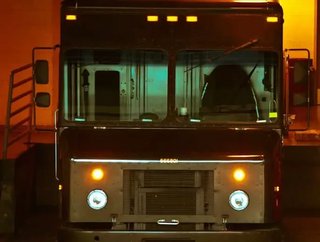UPS to bridge the gap with renewable natural gas

Having recently signed an agreement with electric vehicle developer Arrival, UPS has now signed multi-year agreements with renewable natural gas (RNG) providers Kinetrex Energy and TruStar Energy to mitigate its emissions while scaling up its renewables-powered fleets.
The new contracts will see Kinetrex supply UPS with 52.5 million gallon equivalents (GEs) for use in the logistics giant’s tractor trailer vehicles in the US Midwest, namely in Chicago, Columbus, Indianapolis, St Louis and Toledo.
TruStar, meanwhile, will supply 27.5 million GEs of RNG for use in UPS’s compressed natural gas (CNG) vehicles in Visalia and Moreno Valley, California.
SEE ALSO:
“The use of RNG is a very important part of UPS’s strategy to increase alternative fuel consumption to be 40% of total ground fuel purchases by 2025,” said Mike Whitlatch, Vice President of Global Energy and Procurement at UPS.
“We are using both liquid natural gas (LNG) and compressed natural gas as bridging fuels to increase our use of RNG. This will have a measurable impact as RNG yields up to a 90% reduction in lifecycle greenhouse gas emissions when compared to conventional diesel. Using RNG is what will ultimately help UPS meet its 2025 sustainability goals.”
UPS, as one of the world’s leading logistics providers, is leading by example in its moves to ensure readiness for the decarbonisation of road networks. This necessity is becoming increasingly pressing, with UK Prime Minister Boris Johnson announcing at COP26 that the UK will bring the suspension of combustion engine-based vehicle sales forward from 2040 to 2035. With the UK having led the pack in its pledge to switch entirely to renewables-based vehicle sales by 2040, this latest move could trigger similar moves from governments across the globe.






